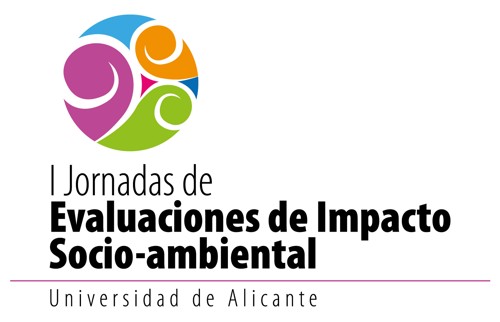
.
These Days, that will be held from 31 march to 4 April at the University of Alicante, have as a goal the training of students, technicians and experts in the Methodologies of Social Impact Assessment.
A commonly accepted definition of SIA (Social Impact Assessment) is understood as methodologies that “includes the processes of analysis, monitoring and management of the social consequences foreseen and unforeseen, both positive and negative, of planned interventions (policies, programmes, plans, projects) and any process of social change induced by those interventions.”
Social impact assessments are becoming a requirement on the part of the large global institutions and regional for the design and execution of development projects, engineering works or social interventions.
The EIS is presented as an instrument oriented to strengthen the decision-making process related to the design, implementation and management of the project. This approach aims to contribute to the risk management of the interventions in terms of targeting the reduction of economic costs, social and environmental both of those fall on the companies or institutions driving the action as on the local communities affected. Emphasizes that the EIS should be incorporated from the start as a tool of design, and to accompany the project as an important piece in their management and follow-up. This approach extends the concept of a project beyond the work or the intervention of the study in all phases of their life cycle and to understand it as a social process and not just as a technical exercise.
Presentation
What is a Social Impact Assessment?
A) The Social Impact Assessment (SIA) arose from the need to include in development projects, the study of, on the one hand, the consequences or social impacts of such projects and, on the other, the effects of the social in such projects. The EIS aims to address the deficiencies in the “social accounting” of any project that produces social change in communities affected or involved. The EIS can be applied to projects, actions or interventions such as: projects of cooperation and development, environmental, tourism, industrial facilities, public works, urban development plans, changes or modifications in the institutions of health or education, social intervention programmes as well as specifically to complete the social analysis in the Environmental Impact Studies (EIA).
(B) The EIS provides a structured methodology to carry out a change in the way we understand and manage the social aspects involved in these processes. Until very recently, the social have been treated as a cost. The EIS proposes to understand the social as a resource and its proper management ensures a greater likelihood of success.
Objectives of the Course
General objective of the course
Form into theoretical, epistemological, methodological and technical aspects of the Social Impact Assessment in the framework of the design and development of projects of intervention in public and/or private environment.
Compare cases from different contexts in environmental, socio-economic and thematic –focused on the Latin american region – with the aim of understanding the multiplicity of causal of the social impacts and consequences on different communities and territories
Specific objectives
1. Knowing the environmental context in which it arises the necessity of the EIA and the EIS: history and present.
2. To know the theoretical framework of the EIS: major currents and themes.
3. To know the foundation of epistemological of the EIS and its axiology.
4. Know the phases of execution in a process of social impact assessment.
5. To know the existing methodologies, their processes, features and the principles that ground it.
6. Learn the techniques of social research that are fundamental to the EIS and how to apply.
7. Know the basic procedures of analysis of quantitative and qualitative data from the techniques cited above.
Programming
March 31, 2014 – Seminar 1. Building of the Faculty of Economic
16:30-17:00h WELCOME TO ATTENDEES AND introduction to THE COURSE
17:00-20:30h WORKSHOP METHODOLOGICAL IN EIS
April 1, 2014
Living room of degrees of the Faculty of economics
09:30-10:00 OFFICIAL OPENING OF the COURSE
10:00-11:00 PRESENTATIONS ON CASE STUDIES AND WORKSHOPS DISCURSIVE
10:00-10:30 CONFERENCE OPENING: PROF. CELSO LOCATEL
10:30-14:00 PRESENTATIONS ON CASE STUDIES AND WORKSHOPS DISCURSIVE
Seminar 1. Building of the Faculty of Economic
16:30-20:30h WORKSHOP METHODOLOGICAL IN EIS
April 2, 2014 – Seminar 1. Building of the Faculty of Economic
09:00-14:00 LECTURES CASE STUDIES AND WORKSHOPS DISCURSIVE
16:30-20:30h WORKSHOP METHODOLOGICAL IN EIS
April 3, 2014 – Seminar 1. Building of the Faculty of Economic
09:00-13:15h LECTURES, CASE STUDIES AND WORKSHOPS DISCURSIVE
13:15-14:00h CONFERENCE CLOSING PROF. PETER JACOBI
16:30-20:30h WORKSHOP METHODOLOGICAL IN EIS
April 4, 2014 – Seminar 1. Building of the Faculty of Economic
09:00-14:00h WORKSHOP ON-LINE
Registration
The course has been designed for a double student profile:
- 1) university Graduates in areas related to the design and development of intervention projects (sociology, tourism, architecture, engineering, environmental science, ecology, biology, economics, cooperation and development, health).
- 2) Professionals in public or private accredited experience in the design and management of projects that involve changes to socio-environmental in the environments of reference.
Registration information:
Cost for attendance to the course: 90€
Cost for attendance to the training course unemployed and students: 60€*
*It is necessary to submit documentation for validation.
You will be able to enroll until the march 24, 2014.
How do I subscribe?
1. Payment of the amount stated in the following account: 0081 – 3191 – 43 – 0001030312 – BANCO SABADELL
– IBAN: ES76 0081 3191 4300 0103 0312
– SWIFT: BSABESBB
Important that the cause of admission includes: Workshops IST-IUACA
2. After the payment, you must attach the receipt on a message sent to e-mail: [email protected]. Until you receive the confirmation response, it is not you enrolled.
Credits and certificate:
Certificate of attendance of 40 hours by the University Institute of the Water and the Environmental Sciences. (IUACA).
It is necessary to pay to receive the certificate.
No Registration: the maximum number of students admitted to the course will be 60 students.
More information at: blogs.ua.is/elei/
.
